Water Prize Laureate Oki Taikan: The Power to Engage Holds Key to a Sustainable Future
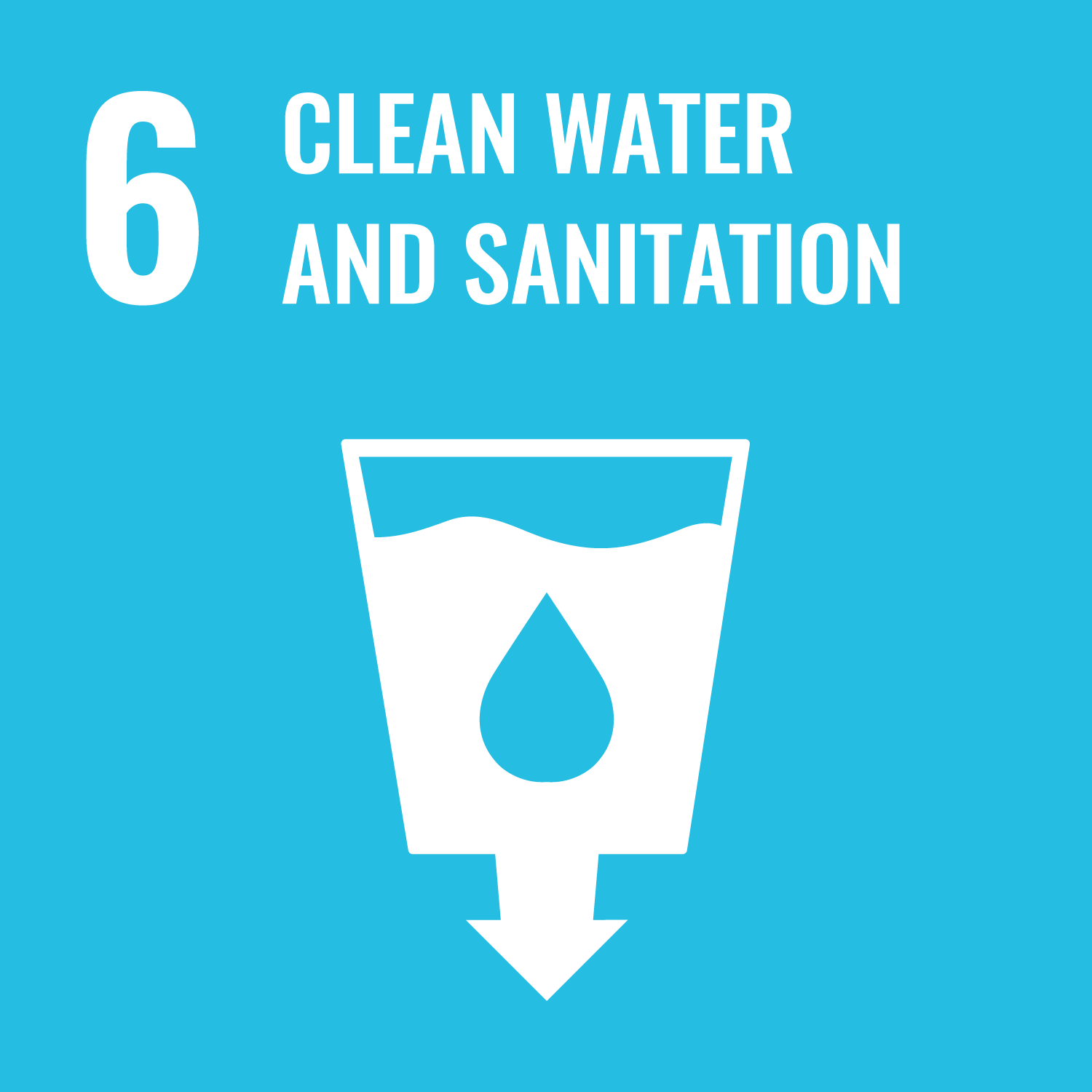
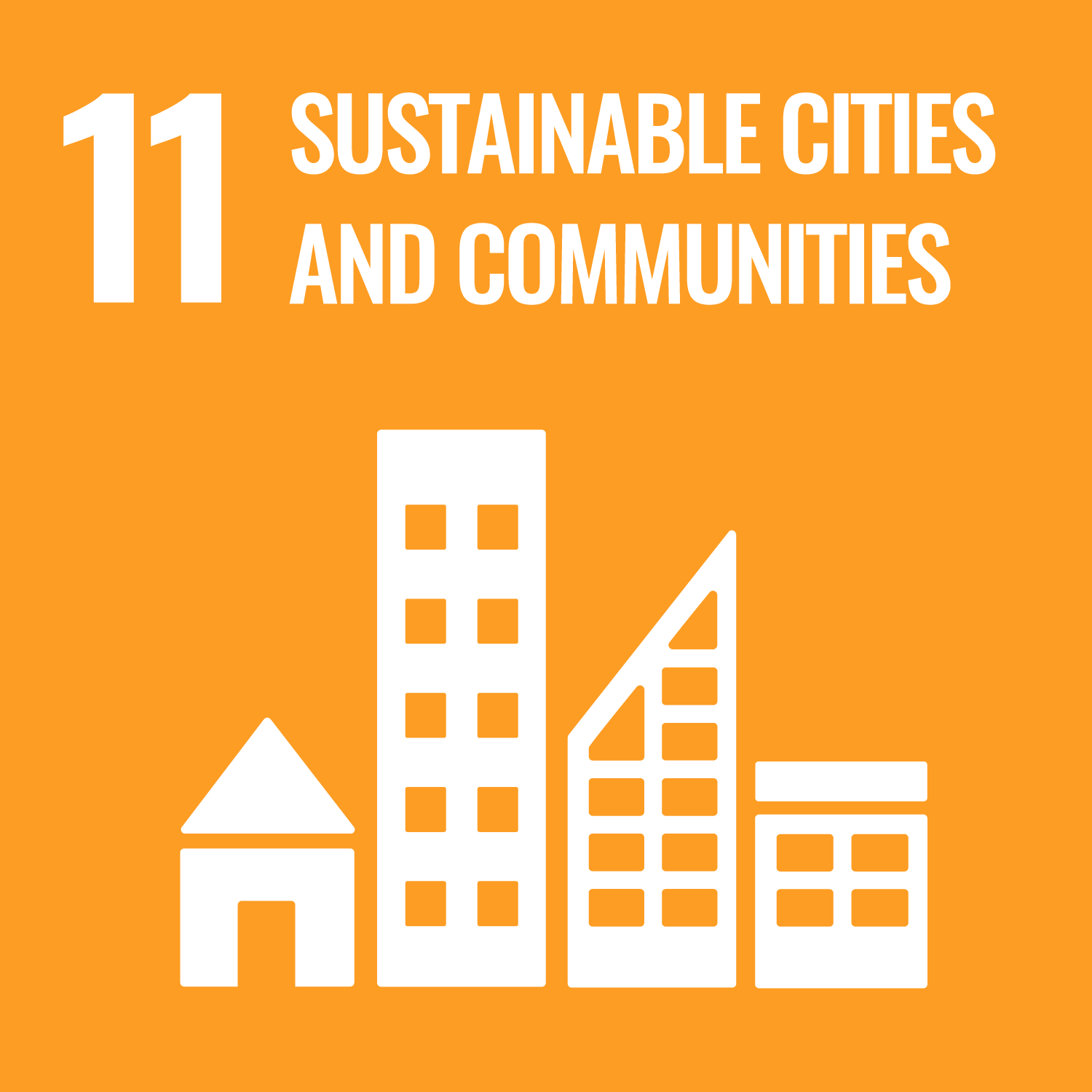

2024.10.07
University of Tokyo Professor Oki Taikan was the 2024 recipient of the Stockholm Water Prize, known as the “Nobel Prize of water.” He has long partnered with JICA to research development approaches that are resilient to climate-induced water disasters. He spoke with JICA Executive Senior Vice President Miyazaki Katsura on ways to build a more sustainable future in the face of rising climate risks.
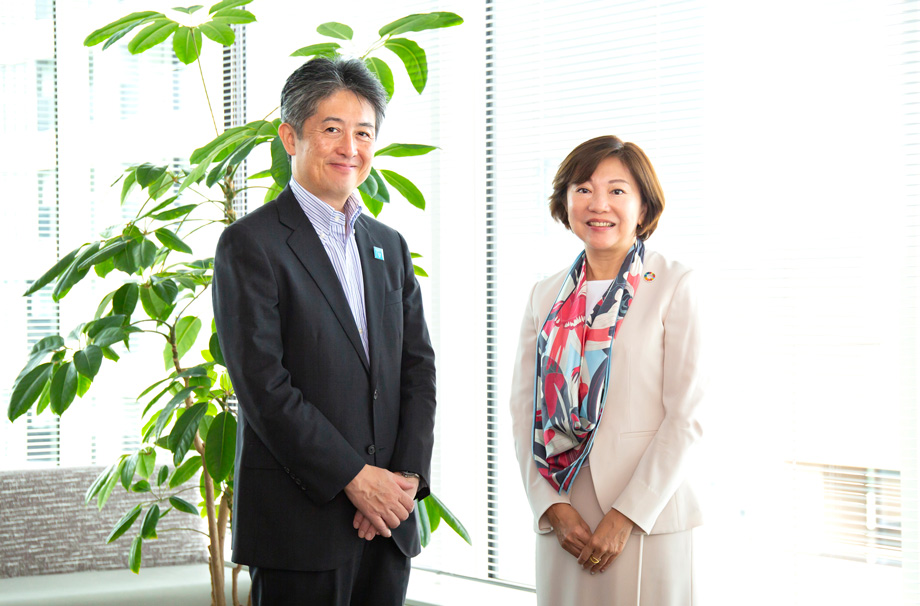
Professor Oki Taikan of the Graduate School of Engineering, University of Tokyo (left), and JICA Executive Senior Vice President Miyazaki Katsura.
Climate change has had perhaps the greatest impact on water, creating challenges for all of humankind in the form of large-scale natural disasters, such as floods, droughts, and wildfires.
Oki Taikan is a world-renowned expert in hydrology—the study of all water-related phenomena on our planet. He has developed a numerical model of complex systems that incorporates river flow and human activity in the water cycle. This model has enabled a more accurate grasp of the global water balance and has made it possible to predict the impact of climate change on water resources and human life. The digital mapping of the world’s major rivers that he developed is the one most widely used today. The Stockholm Water Prize was awarded for his work that has greatly advanced human understanding of the links between hydrology, climate change, and sustainability.
A research team led by Oki has been involved for many years in the SATREPS (Science and Technology Research Partnership for Sustainable Development) program that addresses global issues in partnership with developing countries, administered by JICA and the Japan Science and Technology Agency (JST). His team conducted two joint research projects in Thailand on developing adaptation measures to reduce the risk of climate-induced water-related disasters.
In the following, Oki and Miyazaki Katsura, who cooperated with Oki’s research initiatives while she was head of JICA’s Thailand Office, explore ways of getting more people engaged in building a sustainable future.
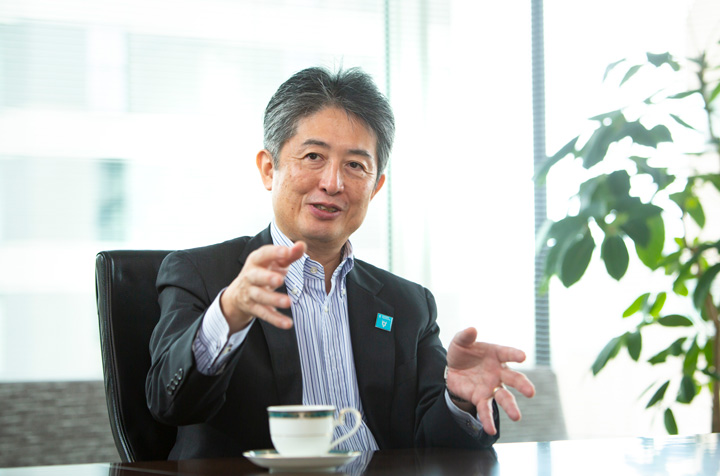
Oki Taikan, Special Advisor to the President of the University of Tokyo; Professor, Graduate School of Engineering, University of Tokyo
Graduated from the University of Tokyo and received his PhD in engineering from his alma mater. Is also a certified meteorologist. Has been a professor at the University of Tokyo since 2006. Served as Senior Vice-Rector of the United Nations University and Assistant Secretary-General of the United Nations from 2016 to 2021. Other positions include serving as a lead author for the Fifth Assessment Report of the Intergovernmental Panel on Climate Change (IPCC) and a member of the National Land Council. Was awarded the Stockholm Water Prize and the Japanese government’s Medal with Purple Ribbon in 2024. Recent publications include Kiko hendo to shakai: Kiso kara manabu chikyu ondanka mondai (Climate Change and Society: A Primer on Global Warming Issues), published by the University of Tokyo Press.
MIYAZAKI KATSURA: Congratulations, Professor Oki, on winning the highly prestigious Stockholm Water Prize.
OKI TAIKAN: Thank you. As you know, I was engaged in two joint research projects with JICA on water, climate change, and sustainable development in Thailand from 2008. And I believe those achievements were taken into consideration in the selection process for the prize.
MIYAZAKI: JICA gives great importance to human security, a concept that sees all individuals as being entitled to the freedom from fear, freedom from want, and freedom to live in dignity. We’ve also been strengthening our efforts to promote sustainability and contribute to the achievement of the SDGs. Looking back on your projects in Thailand, I’m struck by the pioneering nature of your work, as suggested by attempts to apply the outcomes of your research for the benefit of society. This is something that we at JICA are now seeking to advance.
OKI: Human security is a notion that the United Nations and the Japanese government proposed to the international community, and it’s something we should be proud of. It shifts the focus of security policies from the protection of countries to people. This informs much of what JICA is doing, and that’s why we in the research community were motivated to utilize the results of scientific and technological research to benefit society.
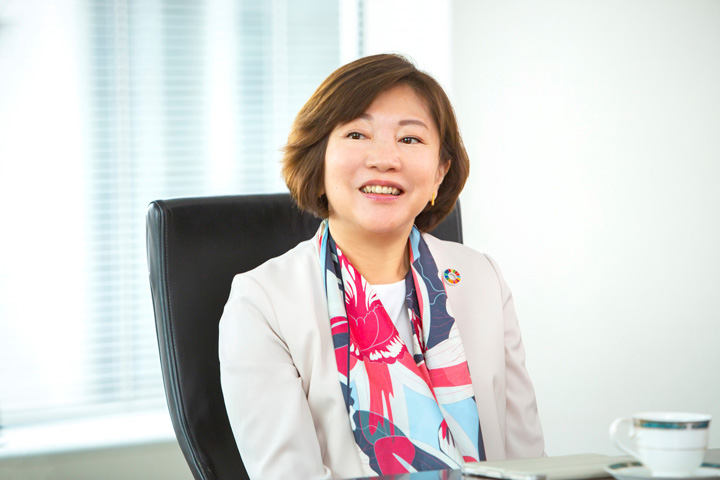
Miyazaki Katsura, Executive Senior Vice President, JICA
Assumed her current position in May 2024 after being appointed Senior Vice President in October 2022. Has also served as Senior Deputy Director General and Senior Director of the Office for Gender Equality and Poverty Reduction in the Infrastructure and Peacebuilding Department, Chief Representative of the Thailand Office, and Director General of the Governance and Peacebuilding Department.
MIYAZAKI: For your projects in Thailand, you managed to involve many researchers from various fields and from both leading Thai institutions like Kasetsart University and Japanese universities.
OKI: The reason we invited people with many different backgrounds is because climate change has very broad impact. And water is associated with a full range of areas, from human health to urban development. We also knew from experience that working across many different fields can create positive synergies. This is true of the SDGs as well. Positive outcomes in one of the 17 domains will also lead to gains in closely related fields.
The IPCC’s Sixth Assessment Report published in 2022 introduced a concept called climate resilient development, which can be achieved by generating synergies through the appropriate development of human society, actions to mitigate or adapt to climate change, and biodiversity conservation. I believe this is a very important idea.
MIYAZAKI: JICA provides cooperation for a broad range of climate-related projects in Thailand, such as support in formulating business continuity plans to enable companies to resume operations quickly in the event of a flood or other natural disaster. You may not have been involved in all of them, but it was thanks to your efforts to engage with both Japanese and Thai researchers that many of these projects materialized. That said, I can’t help but feel that interest in developing countries among Japanese researchers has waned in recent years.
OKI: Generally speaking, researchers do tend to focus on domestic developments, and it’s true that cutting-edge research in some fields require facilities that are available only in developed countries. But sustainable water management is a topic that involves meeting society’s needs while protecting nature, so the pursuit of global solutions isn’t something that Japan can do alone. We need to conduct research in locations around the world, including in developing countries.
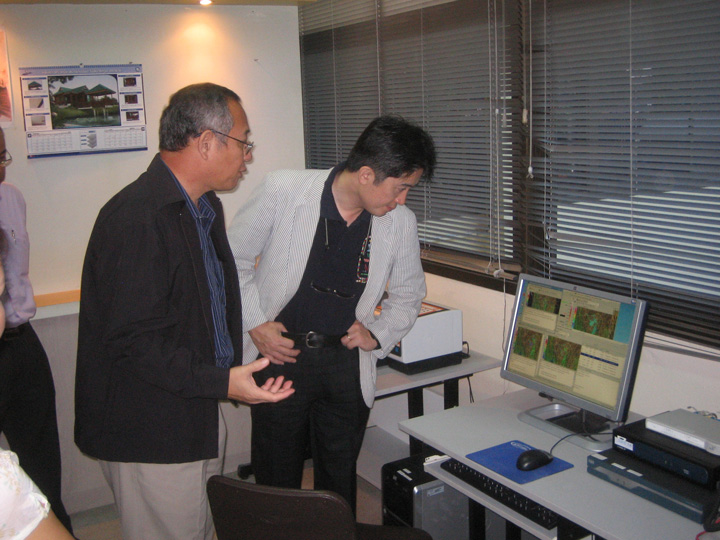
A visit by Japanese and Thai researchers to the radar site of the Thai Meteorological Department. (Photo courtesy of the Japan Science and Technology Agency)
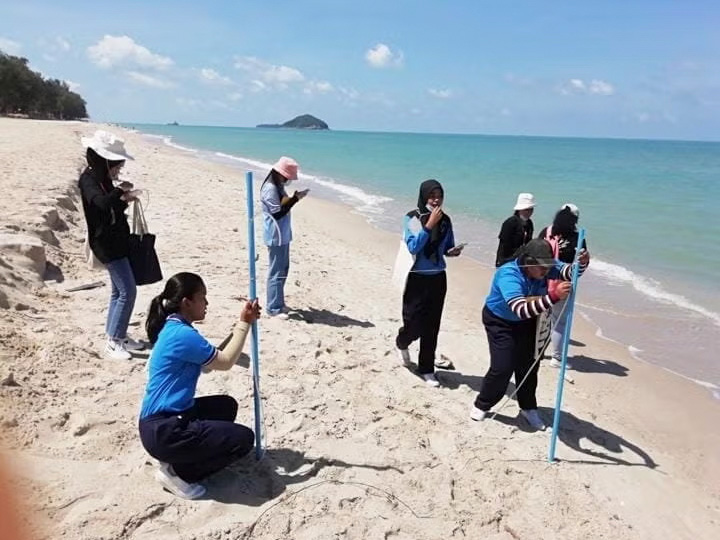
Coastal monitoring by Thai students. Topographic surveys in Songkhla Province, southern Thailand, were conducted with the participation of local personnel.
MIYAZAKI: Focusing narrowly on just Japanese case studies will obviously have limited impact when trying to address global challenges. I’m sure that studying the relationship between nature and water, which can vary from one region to the next, requires analyzing data from many different localities. JICA operates on a similar understanding. We send people to all parts of the world to gather knowledge and gain a firsthand understanding of local needs. I feel that this is a strength that we can tap in more effectively ensuring the application of research results to promote sustainable development and working with developing countries to meet the challenges of climate change.
MIYAZAKI: I was impressed by the many young students participating in your research projects in Thailand. Their presence led to the creation of networks that transcended generational differences.
OKI: I first visited Thailand around 35 years ago when I was participating in UNESCO’s intergovernmental program to promote exchange among scientists. I remember being amazed by the differences in the water environment from one country to another. That experience lies at the heart of my subsequent research career. And it also explains why I’ve been trying to get students involved in as many different projects as possible.
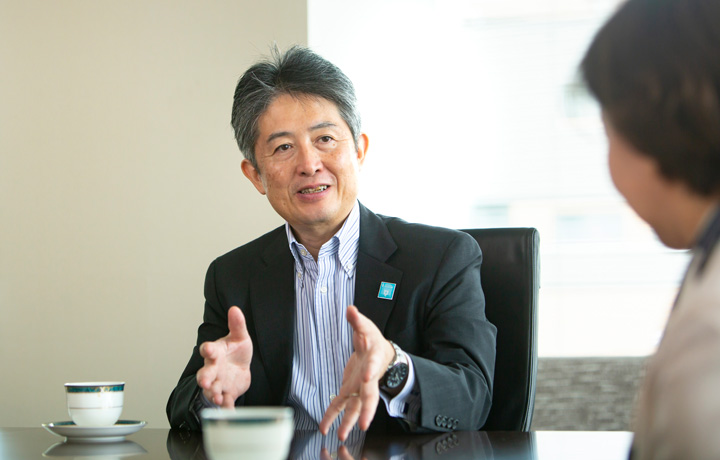
“I often hear that young people have become inward-looking in recent years,” Oki says, “but many of my students tell me they want to go abroad and work in the field of international cooperation.”
MIYAZAKI: What kind of advice do you give your students?
OKI: To operate effectively, an organization needs many high achievers. They’re very good at identifying the most feasible, optimal solutions from among the available choices. But today, there’s perhaps greater demand for transcendent talent. These are the people who’re passionate about pursuing their dreams or interests and come up with ideas that no one had ever dreamed of. Or they’ll set new precedents and rewrite the rules, making textbook approaches obsolete. They have the power to change conventions and transform society.
So, my advice to students is that there’s no “right” answer. Society is constantly changing, and they can become the changemakers. The future is theirs for the shaping. We build our future through the choices we make daily, and those choices will create the society of 10 or 50 years from now.
MIYAZAKI: According to a UN report on financing for sustainable development, about 4.2 trillion US dollars is needed each year to close the development financing gap and achieve the SDGs. Because our budget at JICA is limited, we’re looking to partner with private-sector entities who share our goals and find pathways that will maximize development impact. Right now, though, we’re still trying to determine how we can best visualize and co-create such impact.
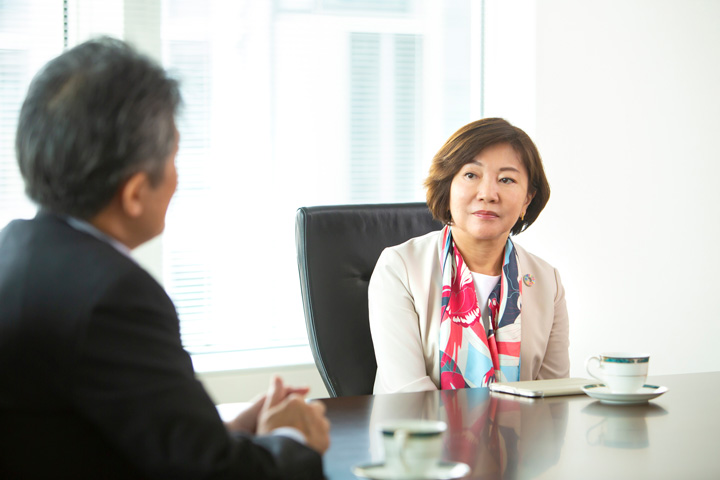
OKI: I think JICA is moving in the right direction. There’s a limit to what we can do on our own, so the best way of bringing about change is to engage with other people. This is the approach we’ve been pursuing in climate-related research.
JICA’s strength is that it’s a well-established institution. Researchers, on the other hand, operate more like sole proprietorships; if they lose interest in a topic or retire, their research can come to a halt. When JICA launches a project, though, it will remain committed for the duration of its run, say for five years, and then conduct a follow-up study. That may be hard work for people at JICA, but it’s a great source of trust. When people feel confident about you, they’re more inclined to join hands and get involved, and this could swell into a movement that changes society.
The JICA brand is well known for maintaining a presence in the field and has tremendous credibility. When approaching a potential research partner, all we have to say is, “We’d like to work with you as part of a JICA project,” and they’ll be ready to listen to us. I was really struck by the strength of the JICA brand while working on the research projects in Thailand. People believe that teaming up with Japanese researchers will yield good ideas and that things will go smoothly if they collaborate with JICA. This sense of trust, perhaps more so than the size of financing, is a major asset in moving projects forward.
MIYAZAKI: As stated in our vision, JICA believes in “leading the world with trust.” Our approach is rooted in close collaboration, working hand-in-hand with partner countries to meet their needs. While this may not conform exactly to the Western model of development cooperation, but it has earned us the trust of countries around the world. And our conversation today has deepend my conviction that our responsibility at JICA is to build such trust by enhancing the kind of value that money can’t buy. I hope we can continue to work together toward a more sustainable future.
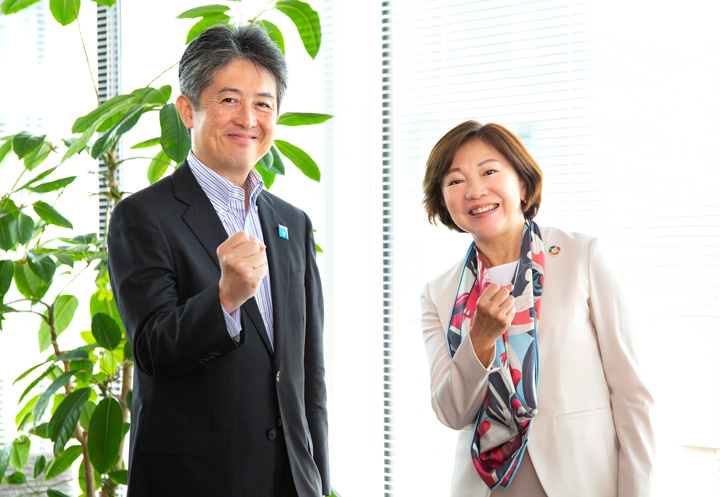
About the Science and Technology Research Partnership for Sustainable Development (SATREPS)
SATREPS is a program administered by JICA, the Japan Science and Technology Agency (JST), and the Japan Agency for Medical Research and Development (AMED) to promote joint research among Japanese and developing country experts to address global issues. It aims to generate new knowledge that can help resolve global issues by partnering with developing countries on science and technology cooperation with the goal of applying the research results to benefit society.
SATREPS projects in Thailand involving Professor Oki’s research team:
Integrated Study Project on Hydro-Meteorological Prediction and Adaptation to Climate Change in Thailand (IMPAC-T)
https://www.jst.go.jp/global/english/kadai/h2001_thailand.html
Advancing Co-design of Integrated Strategies with Adaptation to Climate Change (ADAP-T)
https://www.jst.go.jp/global/english/kadai/h2702_thailand.html
scroll